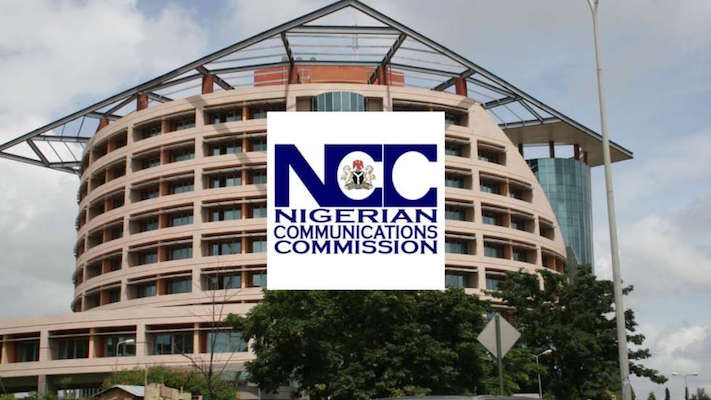Nigeria eyes $1bn Telecom boost as 11 states drop Right-of-Way fees
Nigeria’s telecommunications sector is poised for a significant leap forward as operators pledge over $1 billion in new investments to expand broadband coverage, spurred by a wave of state-level reforms slashing Right-of-Way (RoW) fees.
Dr. Aminu Maida, the executive vice chairman, Nigerian Communications Commission (NCC), who disclosed this at the Business Roundtable on Improving Investments in Broadband Connectivity at the Digital Economy Complex in Mbora, announced that five additional states, Adamawa, Bauchi, Enugu, Benue, and Zamfara, have eliminated RoW charges entirely.
This builds on the earlier decision by six states: Anambra, Katsina, Kebbi, Nasarawa, Osun, and Plateau, to eliminate RoW fees, bringing the total to 11 states offering zero-cost RoW to accelerate broadband infrastructure deployment.
This move is set to accelerate Nigeria’s ambitious goal of achieving 70 percent broadband penetration by the end of 2025, unlocking economic growth and digital inclusion across the country. The RoW fee waivers address one of the telecom industry’s most persistent barriers: the high costs imposed by state governments for laying fibre optic cables along public roads.
Read also: Nigeria’s telecom sector thrives with 171.6m subscribers in August 2025
Despite a 2013 Nigerian Governors Forum resolution capping RoW fees at N145 per linear meter, inconsistent and often exorbitant charges have slowed broadband deployment, particularly in underserved regions.
Maida highlighted that the decision by 11 states to waive these fees, with 17 others adhering to the N145 cap, signals a growing recognition of broadband’s role as a catalyst for economic transformation. “These reforms are a game-changer. They reduce costs for operators, boost investor confidence, and pave the way for faster, more affordable connectivity for Nigerians,” Maida said.
The $1 billion investment commitment from telecom operators, confirmed by Maida, is a direct response to these policy shifts and recent NCC regulatory actions. Earlier this year, the NCC approved cost-reflective and competitive tariff rates, bolstering investor confidence in a sector already contributing significantly to Nigeria’s GDP.
With broadband penetration at 48.81 percent as of August 2025, serving over 140 million internet users, the sector is a cornerstone of the nation’s economy.
Research cited by Maida suggests a 10 percent increase in broadband penetration could drive 1.38 percent GDP growth in developing economies, potentially adding billions in economic output, new jobs, and innovation hubs across Nigeria’s 36 states and the Federal Capital Territory. The stakes are high in a country with over 200 million people and a median age of 18.
Read also: Telecom operators to pump $1 Billion into Nigeria’s networks by 2025 – NCC
Maida emphasized that reliable, affordable connectivity is critical to equipping Nigeria’s youth for the global digital economy. “Our graduates can compete globally, our entrepreneurs can access international markets, and our states can foster innovation-driven ecosystems,” he said, pointing to Rwanda’s success as a digital services hub and India’s $240 billion IT outsourcing industry as models Nigeria could surpass with the right infrastructure. However, challenges remain.
The EVC noted that between January and August 2025, Nigeria recorded 19,384 fibre cut incidents, 3,241 cases of equipment theft, and over 19,000 denials of access to telecom sites, causing outages, revenue losses, and increased security costs.
These disruptions underscore the urgency of the Critical National Information Infrastructure (CNII) Presidential Order, signed by President Bola Ahmed Tinubu in June 2024, which strengthens protections for telecom assets.
The NCC, in collaboration with the Office of the National Security Adviser (ONSA), has established a Telecommunications Industry Working Group to enforce site security standards and has launched public awareness campaigns to curb vandalism.
To further streamline broadband expansion, the NCC is promoting a “dig-once” policy to coordinate fibre deployment with public works, reducing accidental cuts and civil works costs. The commission also commissioned a wholesale Fibre Study to ensure transparent interconnection terms for backbone owners and Internet Service Providers, unlocking last-mile expansion.
Read also: Nigeria’s telecom operators push for urgent training reforms over widening skills gaps
On October 9, the NCC will launch two tools: the Ease of Doing Business Portal, a one-stop platform for state-level telecom information, and the Nigeria Digital Connectivity Index (NDCI), a scorecard to rank states’ digital readiness and drive accountability.
Maida called on governors to adopt uniform RoW policies, institutionalise coordination with operators, and support hybrid power solutions to enhance network reliability. “Every state holds a strategic lever. Alignment across all 36 states can transform Nigeria into a continental digital powerhouse,” he said.
States that have waived RoW fees are already seeing expanded networks, proving the impact of pro-investment policies. As Nigeria races to meet its National Broadband Plan target of deploying 90,000 kilometres of fibre optic infrastructure by year-end, the RoW waivers and operator investments signal a turning point.

